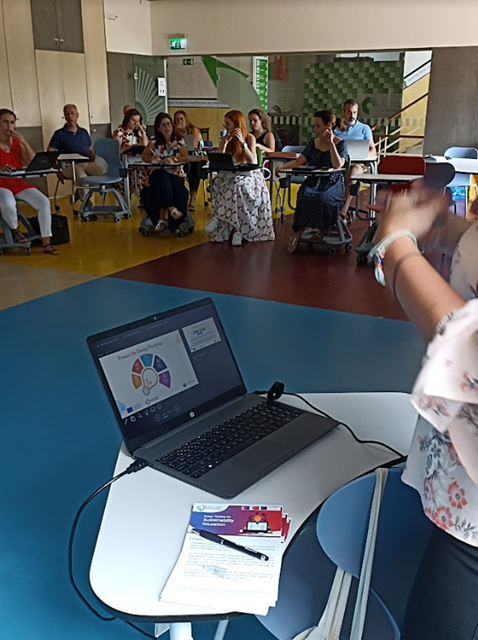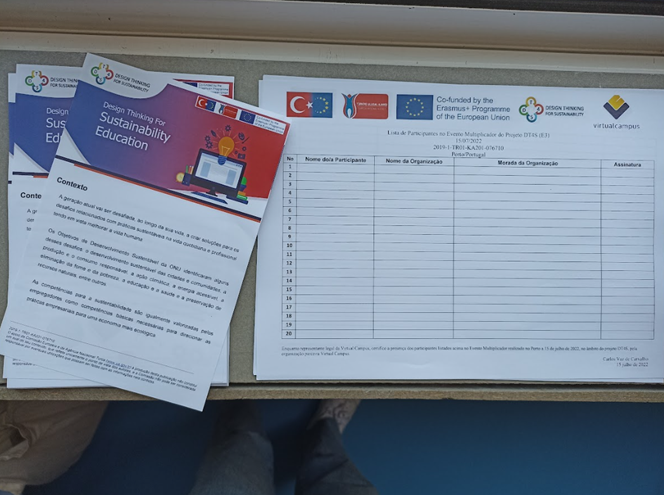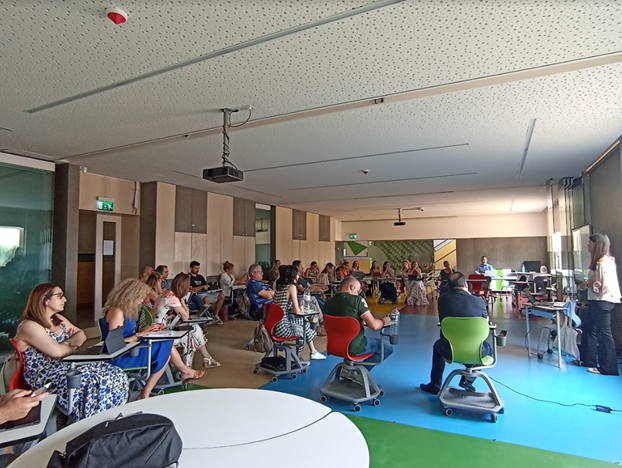Multiplier Event of DT4S Project was held in Portugal
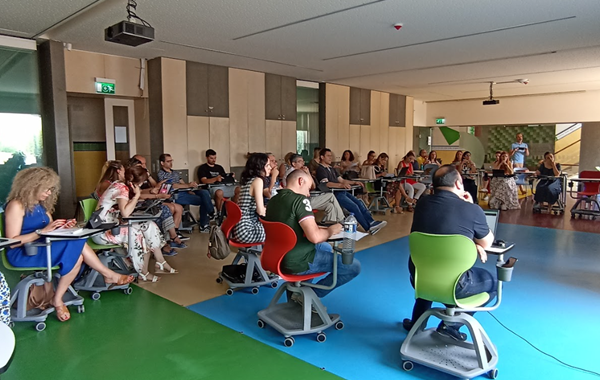
Design Thinking For Sustainability Education(DT4S) Project (2019-1-TR01-KA201-076710), supported by the European Commission through Turkish National Agency under Erasmus + Program School Education Programme, has been carried out by the Governorship of Istanbul (Turkey), Virtual Campus (Portugal), Advanced Technology Systems (Romania), Tallinn University (Estonia) and Thessaly University (Greece) between 01/09/2019 -31/08/2021.
DT4S aims to raise the awareness of secondary school students aged 12-16 and to develop their basic knowledge, positive attitudes, problem solving skills, collaboration ability and synthesis skills through the innovative solutions in order to prepare them for active participation in sustainable development practices.
DT4S Project multiplier event was held in Portugal on 15/07/2022 with the participation of 42 teachers and students. The event organized by Virtual Campus. The event programme was as follows:
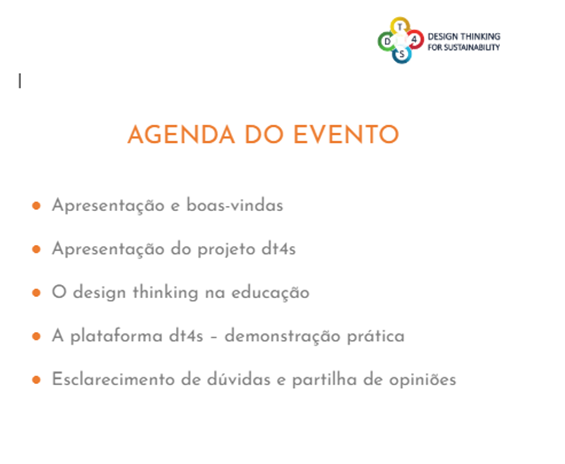
The event consisted of a session, organised in collaboration with Colégio Internato dos Carvalhos, which is a private school and offers all levels of education, from primary to secondary. In total, 42 teachers attended the event.
The agenda included an introductory part, where we presented the project, its partnership, objectives and results. In order to better contextualise the participants about the project, we also introduced a brief explanation about the use of the Design thinking methodology in education and its 5 stages. Then, the rest of the presentation was very focused on the platform. Initially, it was carried out a more theoretical presentation of it (e.g. about the existing menus, types of functionalities, student and teacher profiles), as well as a demonstration of the main supporting materials available (manuals and infosheets).
Finally, we proceeded with a practical demonstration of the platform, where we instructed participants on how to access it, how to navigate through the different menus, how to duplicate and edit the activities, how to create working groups within the classes, and how to access the analytics of the classes created. In the end, there was enough time to clarify existing doubts, receive comments and suggestions, and debate over the mentioned topics. All participants filled in the attendance list, which is an important document to assess the impact of the event.
